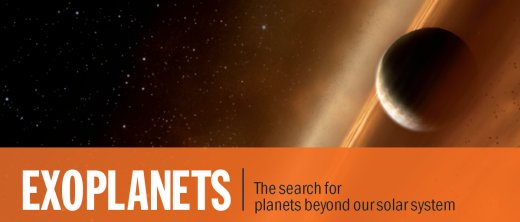
By Hamish Johnston
On 31 March, the physicist and popular author Paul Davies will give an online lecture on physicsworld.com entitled The Eerie Silence: Are We Alone in the Universe? . To watch the event, register for free here.
Davies will examine the 50-year search for messages from an alien civilization, and consider several ways in which alien technology might have left subtle footprints in the universe.
Exactly where such civilizations could live is the subject of intense scientific activity as astronomers search the heavens for exoplanets — planets that orbit stars other than the sun.
About 430 exoplanets have been discovered so far, but none of these can really be described as an Earth-like planet in the “habitable zone” — a place where life could emerge and flourish.
This doesn’t mean that habitable planets are rare, it’s just that the techniques currently used to find exoplanets are biased towards Jupiter-sized bodies that are relatively close to their parent stars.
This is set to change with the next generation of telescopes, which will be much better equipped for looking for small rocky planets like Earth.
You can read all about the hunt for exoplanets in Exoplanets: The search for planets beyond our solar system, and eight-page report published by the Institute of Physics (which also publishes physicsworld.com).
The report does a nice job of describing the various techniques now being used to find exoplanets — and looks forward to new missions that look set to find lots of Earth-like planets. There is, however, a strong bias towards projects that involve UK researchers — that’s because the bulk of IOP members are in the UK.
And if the report doesn’t whet your appetite for Davies’s lecture, why not read his article The eerie silence, which we have just published.



